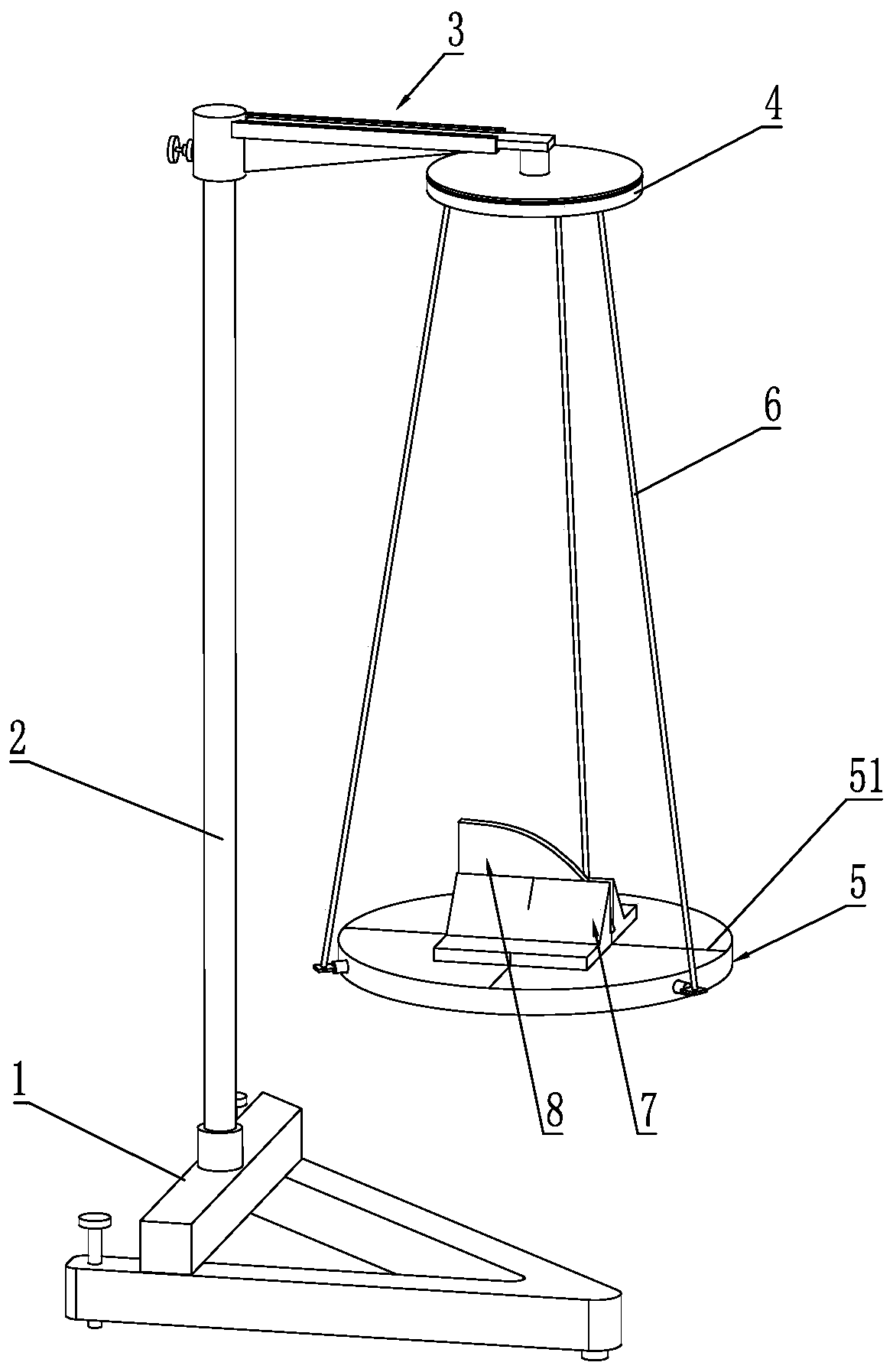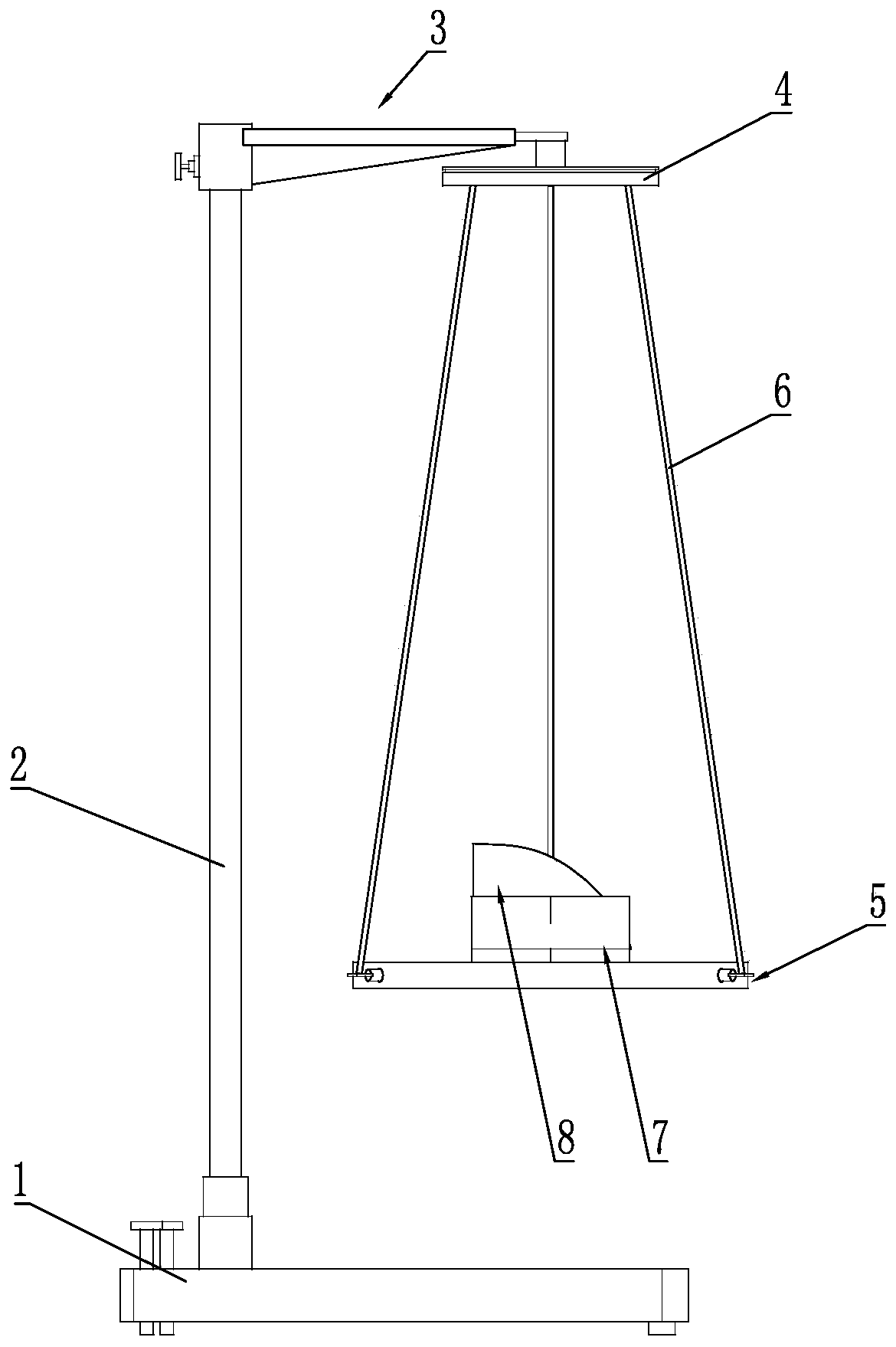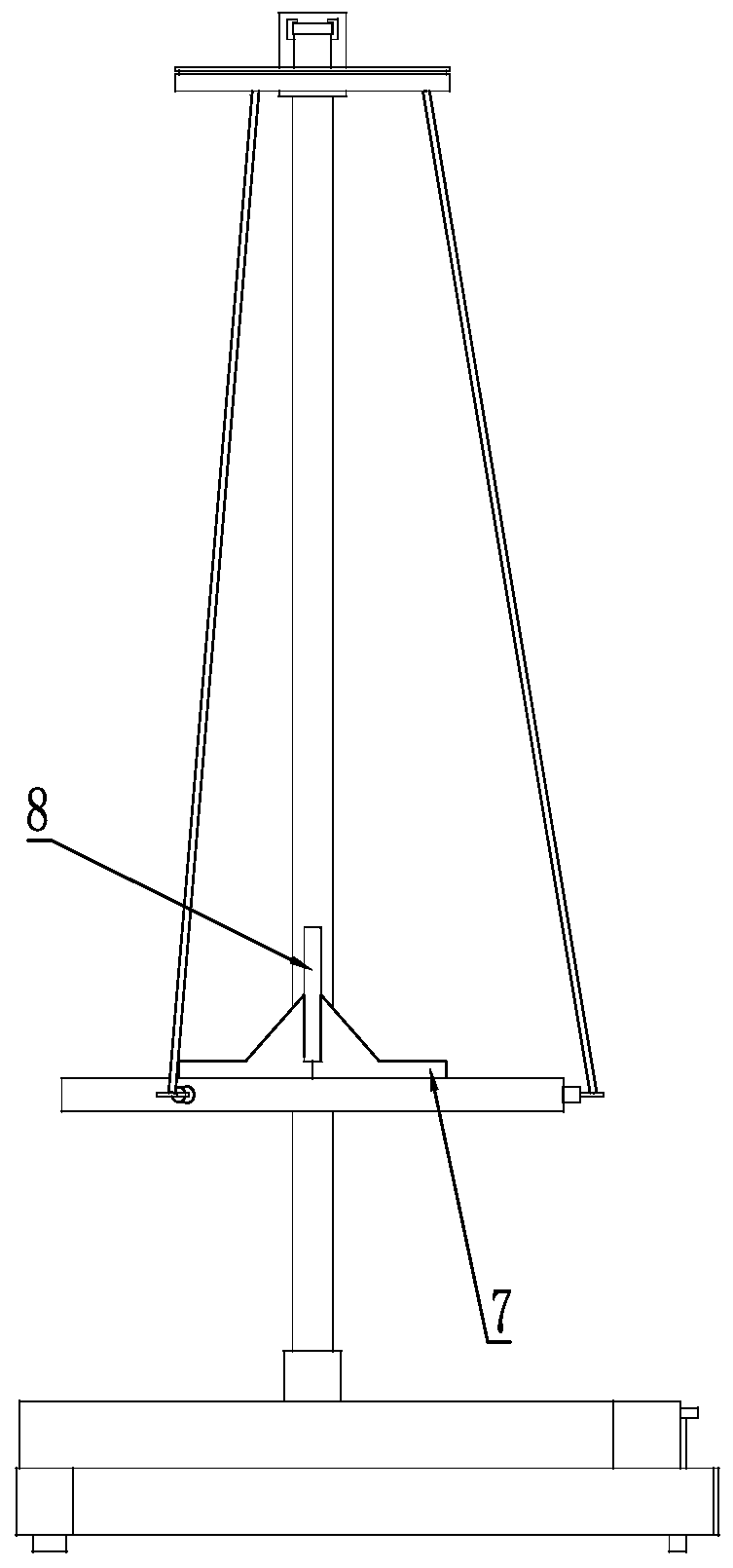Three-line pendulum capable of verifying rigid body rotational inertia perpendicular axis theorem
A rigid body rotation, vertical axis technique, applied to a three-wire pendulum. It can solve the problems of vertical axis theorem verification test without rigid body moment of inertia, inability to use and measure, and increase in the volume of the three-wire pendulum, so as to achieve the effect of reducing volume and occupied space, simple structure, and reducing wind resistance
- Summary
- Abstract
- Description
- Claims
- Application Information
AI Technical Summary
Problems solved by technology
Method used
Image
Examples
Embodiment 1
[0033] Such as Figure 1 to Figure 4As shown, the three-wire pendulum that can verify the vertical axis theorem of rigid body moment of inertia includes a base 1, a vertical rod 2 fixed on the base 1, a horizontal rod 3 fixed on the upper end of the vertical rod 2, an upper plate 4, and a lower plate 5 and three suspension wires 6 arranged between the upper plate 4 and the lower plate 5, the base 1 has a supporting function, as the installation base of this embodiment, the upper plate 4 and the lower plate 5 Correspondingly arranged in parallel, the upper plate 4 can rotate relative to the cross bar 3 to drive the lower plate 5 to rotate, wherein three suspension wires 6 are evenly arranged to connect the upper plate 4 and the lower plate 5 Connected, when the upper plate 4 rotates, the suspension wire 6 drives the lower plate 5 to rotate, so as to realize the rotation of the rigid body to be tested, and is used to realize the measurement test of the moment of inertia; the thr...
Embodiment 2
[0050] Embodiment 2 is to further improve the lower wall 5 and the cross bar 3 on the basis of the first embodiment. Therefore, the same parts as the first embodiment will not be repeated here, and only the lower wall 5 It will be described in detail with the crossbar 3 .
[0051] see Figure 8 with Figure 9 , three mounting holes 52 are evenly distributed on the outer peripheral surface of the lower wall 5, and the centerlines of the three mounting holes 52 all intersect with a point on the axis line of the lower wall 5, and the three mounting holes Telescopic rods 53 are correspondingly installed in the holes 52, and the lower ends of the suspension wires 6 are fixedly connected to the outer ends of the telescopic rods 53. Since the telescopic rods 53 can slide in the mounting holes 52, when in use , the protruding position of the telescopic rod 53 relative to the outer peripheral surface of the lower plate 5 can be manually adjusted. Figure 8 , like this, the space tha...
PUM
 Login to View More
Login to View More Abstract
Description
Claims
Application Information
 Login to View More
Login to View More - R&D
- Intellectual Property
- Life Sciences
- Materials
- Tech Scout
- Unparalleled Data Quality
- Higher Quality Content
- 60% Fewer Hallucinations
Browse by: Latest US Patents, China's latest patents, Technical Efficacy Thesaurus, Application Domain, Technology Topic, Popular Technical Reports.
© 2025 PatSnap. All rights reserved.Legal|Privacy policy|Modern Slavery Act Transparency Statement|Sitemap|About US| Contact US: help@patsnap.com



